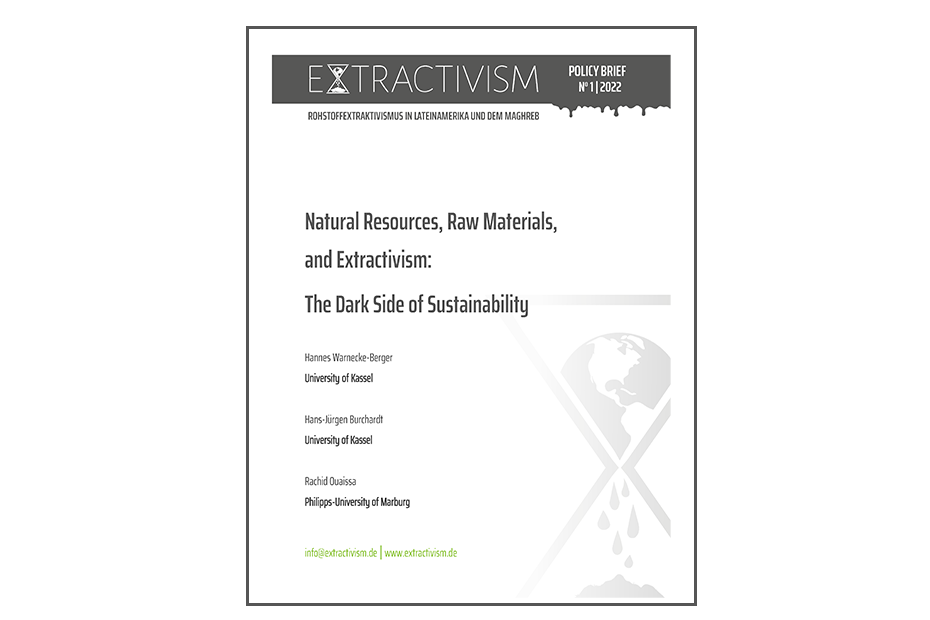This Extractivism Policy Brief argues
Extractivism is the dark side of sustainability
raw materials and primary commodities are the backbones of the global economy
extraction and export of raw materials lead to Extractivism understood as a development model
Extractivism is persistent, prone to crisis, and affects domestic and international constellations
Natural resources are the essential pillar of humankind: They provide raw materials and energy used for economic and human activities. In the 21st century, raw materials and energy carriers remain one of the most critical lubricants of the global economy. More than 100 countries specialize in extracting and exporting raw materials. Raw materials directly affect the livelihood of at least a fourth of the world population who lives in countries dependent on raw material exports. These countries pursue extractivism as a development model.
The issue of natural resources will continue to grow in the coming years. Climate change affords decarbonization, which affords to rethink the laws of motion of the global economy. The only option to influence climate change is pushing for a worldwide energy transition. This push again implies a shift of the resource base both of production and consumption on a global scale. In a nutshell, climate change means energy change, which translates into shifting raw material production and consumption patterns. This shift has severe implications for many countries, the international system, and the world economy.
http://dx.doi.org/doi:10.17170/kobra-202305168028
Download the Extractivism Policy Brief 01/2022 (ENGLISH)
Authors: Dr. Hannes Warnecke-Berger, Prof. Dr. Hans-Jürgen Burchardt, Prof. Dr. Rachid Ouaissa



